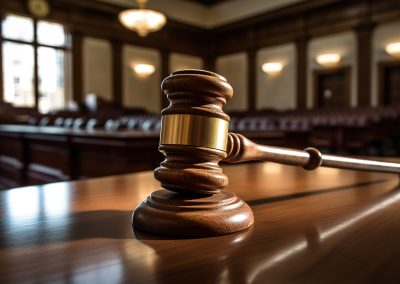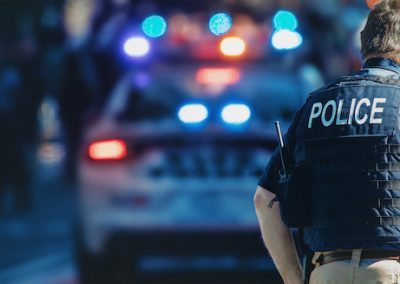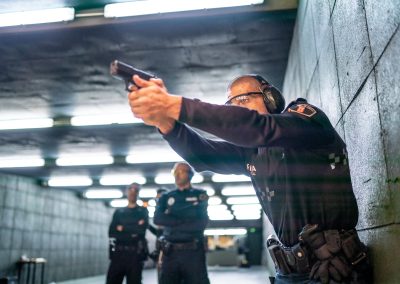The draft of this article has been sitting in my pending file for a few years. Since I’m about 98% retired from the expert industry, I figure now’s the time.
This is a two-part series. Part Uno will deal with the issues of being a consulting expert. Part Dos will cover all the facets of appearing in court as a testifying expert.
How It Works
First, every expert is initially hired as a consulting expert. Simply put, he or she is retained to review certain documents and after examining them, give an oral opinion to the client. That client could be an attorney or a department head or his or her representative. The issue could be a force application, an arrest, or a training matter. Regardless, that opinion is strictly internal at that point. Nothing is put in writing. The opinion is rendered in person or via a telephone conversation.
But we’re getting ahead of ourselves. First let’s talk about what you need to start on the path of becoming an expert.
First, creds: Notice I didn’t say “rank.” Bars or stars do not an expert make. That’s not to say that every expert needs to have slick sleeves either. Not at all. Very often supervisory rank helps your credibility, especially when you cross the threshold from “consulting” expert to “testifying” expert. Generally mid-level first- or second-line supervisors make the most impact. When you get up into the chief ranks you’re generally too far removed from the street scene to be credible. However, you need the requisite instructor or job assignment chops if you’re going to opine in a certain area.
Let’s take use of force, for example. In my opinion, the best experts, the ones I’ve worked with or against, come from the training field. Firearms instructors, DT trainers, and personnel, who are well versed in the workings of CEWs and chemical agents, are often consulted in cases where these tools have been used and where those uses resulted in either a complaint or a lawsuit.
Likewise, experts who’ve worked SWAT or drugs will obviously have more impact than an officer who’s spent most of his or her career in R&D or admin.
Second, your Curriculum Vitae: Clients are going to want to see your professional resume or what’s referred to in the industry as your Curriculum Vitae (or CV for short). That CV needs to contain a whole host of information: your contact info, your work history (all of it, part time as well as full time), your formal education (names of colleges and degrees obtained), your professional training (academies, specialty schools, instructor certifications, etc.), and your military history, if any.
Don’t leave gaps or omit anything. If you’re named as a testifying expert, those omissions will be used to discredit you and a good attorney (or an opposing expert) will know where to look for any skeletons you’ve been hiding in your closet.
There are two schools of thought on a cover/photo page. I opt for having one with a black and white portrait head shot of yours truly in a suit and tie. It looks professional and gives the client an idea of how you’ll appear to a jury. Others say it isn’t worth the cost and to save the money.
Third, published material: There’s a rule out there in Legal Land that mandates that all experts disclose a list of all their published material. When I started in the business back in the late ’80s I decided to make that list a part of my CV, so I wouldn’t have to prepare a separate document. And I still keep that list up to date as I have a few cases still pending disposition. If you’re retained as a testifying expert, the opposing attorney has a right to ask for copies of those articles or papers that he or she deems relevant to the issue at hand. Regardless of how insignificant you think your writings are, if you put a pen to paper or had a piece published online, it must be identified by title, name of the magazine, e-zine or journal that published it and the date of publication—even if it was a self-published piece.
And since we’re talking about self-published pieces, I must tell you that courts generally frown on self-published articles or treatises. You’ll get a lot more mileage if your stuff has undergone peer review in a recognized industry journal, or appeared in a professional, well-known, nationally recognized publication, even if you were paid for it. There’s nothing wrong in the public’s eye (or the court’s mind) about getting compensated for your writings.
Along those same lines, instructor manuals, training tapes/CDs/DVDs or audio tape programs that you’ve appeared in or contributed to are subject to the same disclosure as your written published material.
Fourth, awards or honors: If you’ve been awarded any honors or professional recognition, list those items on your CV. Very often, your CV is offered and accepted as an exhibit in court and even if you’re not asked about your Officer of the Year Award or Heroism Citation, your CV will undoubtedly find its way into the deliberation room and the jury will see it and might give it some weight.
Same goes for your professional affiliations, i.e., FBI National Academy Associates, FBI Law Enforcement Executive Development Association, International Association of Law Enforcement Firearms Instructors, International Association of Chiefs of Police, and any legitimate national advisory boards, as examples.
Fifth, document your teaching history: That’s not to say every class you’ve ever taught needs to be listed, but formal presentations to distinguished bodies should be noted. For example, if you’ve presented at a national training conference of a recognized body, put that down. If you guest lectured at the annual training conference of recognized law enforcement group, don’t be afraid to list it. Again, if you’re retained as a testifying expert, your attorney-client is going to go through that during the qualification phase of your testimony before you’re offered as an expert. The jury needs to hear that you’ve presented to your peers.
Sixth, your professional training. At the risk of being redundant, don’t slight yourself in your professional training. It’s not necessary to put down every training class you’ve ever taken, but if you graduated from the FBI National Academy, put that down along with the date. Likewise, Taser International’s Instructors Course, Monadnock’s Baton Instructor’s School, or that Edged Weapons Instructor’s Course may be relevant to the issue you’ve been asked to opine
Money
Ok, now let’s talk about money. Most prospective clients are going to ask for two things: your CV, which we’ve already discussed, and your fee schedule. They’re going to want to know how much it’s going to cost them to consult with you.
Your fee schedule should be very specific so there’s no dispute on how much you’re to get paid for your review (your initial retainer), any report you’re asked to prepare, your testimony in either deposition or trial, expenses, and any on-scene site inspection you’re asked to make or that you request. Likewise, any stand-by time at the trial while you’re waiting to testify, or additional work you’re asked to perform over and above your initial retainer.
My fee schedule outlines all the above and even covers local depositions at my office (a reduced charge) and the higher cost for out-of-town depositions. Some fee schedules cover payment from portal-to-portal (from the time the expert leaves his or her office to the time he or she returns back home). Others work on a flat daily rate or an hourly rate. Keep in mind that your billing records as well as your fee schedule are subject to disclosure. In other words, opposing counsel can request (and you might be ordered to produce) all your billing records for not only the case you’ve been consulted on, but all your financial records for the preceding four or five years while you’ve been working as an expert. For that reason, a flat rate as opposed to an hourly accounting makes life simpler, at least for me.
Rule 26 Statement
And finally, to finish up with the paper logjam of being an expert, according to Federal Rules of Civil Procedure (FRCP Amended Rule 26) you have to keep track of all cases you’ve ever testified in either deposition or trial. Most often, opposing counsel will request such a list just for the preceding four or five years, but I’ve actually seen that disclosure expanded to when an expert actually started testifying as an expert.
Mine list goes back to 1988. That document, normally called a Rule 26 Statement, needs to include, the date of the testimony, whether it was for the plaintiff or the defense, the style of the case and venue (i.e., the name of the action and in what court it was filed), the case number and the name and contact info of the attorney you worked for.
Conclusion
So if you haven’t given up on the idea of becoming an expert by now, then you’ll want to stand by for Part Two, because here’s where it’s going to get interesting … testifying in court, both federal and state.










0 Comments